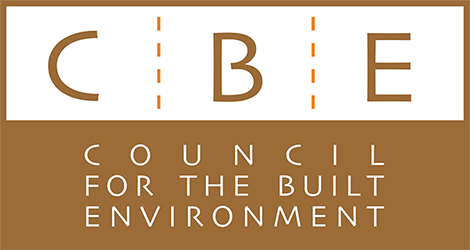Fires Must Be Interpreted as Metaphors for the Challenges We Face as a Country
In recent past, we have unfortunately witnessed a series of devastating fires, violent floods, and explosions that have had profound impacts on our nation’s history, specifically in KwaZulu-Natal, Gauteng, Western Cape and North-west. These series of distressing incidents have had significant repercussions on various communities and had negative impacts on the economy.
Starting in 2021, there was a surge in looting incidents in both KwaZulu-Natal and Gauteng, leaving a trail of destruction in its wake. The looting spread rapidly, impacting businesses, infrastructure, and the livelihoods of countless individuals. The widespread nature of these incidents brought to light some underlying socio-economic issues that require immediate attention and resolution.
Moreover, the province of KwaZulu-Natal, specifically eThekwini faced another challenging situation in the form of devastating floods in 2022. These floods wreaked havoc, causing mass displacement, destruction of homes, and loss of lives. The affected communities have been struggling to rebuild their lives and recover from the aftermath of this natural disaster.
Continuing the unfortunate sequence of events, we also witnessed the burning of the Parliament building in Cape Town also in 2022. Parliament building in not just an ordinary structure but a symbol of our democracy and governance, was tragically engulfed in flames.
In 2022, The fire not only destroyed a significant architectural landmark but also left a lasting impact on our collective consciousness. The loss was not just physical but also symbolic, reminding us of the fragility of our democratic institutions.
Sadly, the recent events have not ceased. In the first quarter of 2023, Johannesburg experienced a devastating fire that engulfed a prominent building in the city. I’m not prophetic but the symbolism behind these events cannot be ignored, as they serves as a stark reminder of the challenges South Africa continues to face. The fire not only inflicted physical damage but also represents the underlying tensions and discontent prevalent in society.
Further, in the month of July 2023, we witness a gas implosion in Bree Street downtown Johannesburg which claimed lives and destruction of properties. During the month of August, the City of Cape Town experienced unprecedented and violent taxi strikes which claimed lives of innocent people and destruction of properties.
Against towards end of August 2023, we witnessed yet another unfortunate incident – the Osindiso Building fire. The Osindiso Building, a prominent cultural centre and hub of creativity, has been reduced to ashes. This blaze has not only ravaged a renowned structure but also dealt a severe blow to the artistic community, taking away a space that nurtured talent and fostered artistic expression. Again, another building in Marshalltown Johannesburg engulfed with fire and fortunately no lives were lost. There are other incidents that were reported from various provinces, cities, and towns which collectively when your properly deconstruct communicate a worrying message.
These incidents sent shockwaves through the nation, symbolizing the deep-rooted discontent and frustrations that exist within certain segments of society. They serve as a reminder of the pressing need for dialogue, understanding, and collaborative efforts to address the underlying issues that led to such an extreme act.
Moreover, these back-to-back incidents of fire, flood, explosions and destruction have prompted me to write this piece with an attempt to explore the symbolism attached to these events. The fires, although accidental in nature, can be interpreted as metaphors for the challenges that society face.
This might be true, when you look at the challenges we face, be it loadshedding, economic stagnation, crime, gender-based violence (GBV), unemployment, corruption, homelessness, inequality, poverty, and generally decay across our social fabric They symbolize the need for resilience, adaptability, and unity in times of adversity.
Considering these events, as a start it is imperative that we come together as citizens, to firstly extend our support and assistance to those affected and bring about normalcy in their livelihoods. We must acknowledge the significance of these events and work towards rebuilding what has been lost. Importantly, we come together to reflect on the lessons these fires have taught us.
The Commission of Enquiry into Marshalltown fire that has been announced by Premier Panyaza Lesufi, provides us with a good start only to lament on who did not do what, but it will form the baseline and reorientate all in paving a collective way forward.
Secondly, it is also essential to address the root causes of these incidents by engaging in open and honest conversations, seeking effective solutions, and promoting inclusivity and social reforms.
We must recognize that the road to recovery may be long and arduous, but with collective efforts and a commitment to positive change, we can overcome these challenges and build a brighter future for all South Africans. Let us seize this moment as an opportunity to reinforce our commitment to democracy, cultural preservation, and community resilience.
In conclusion, I understand that this may require a significant amount of coordination and resources, but I strongly believe that the insights gained from such an event could be invaluable. It would not only contribute to our collective understanding but also pave the way for a more resilient and culturally vibrant future. Together, we can rebuild, learn, and ensure a brighter future for our society.
Issued by:
Chief Executive Officer
Council for the Built Environment
Tel: 012 346 3985
www.cbe.org.za
Enquiries:
Ms. Nosizwe Mokoena
Strategic Support and Engagement Specialist
Mobile: 078 415 9211
Email: nosizwe@cbe.org.za
Ms. Sinah Ndala
Communication Associate: CBE
Mobile: 078 423 1942
Email: sinah@cbe.org.za
